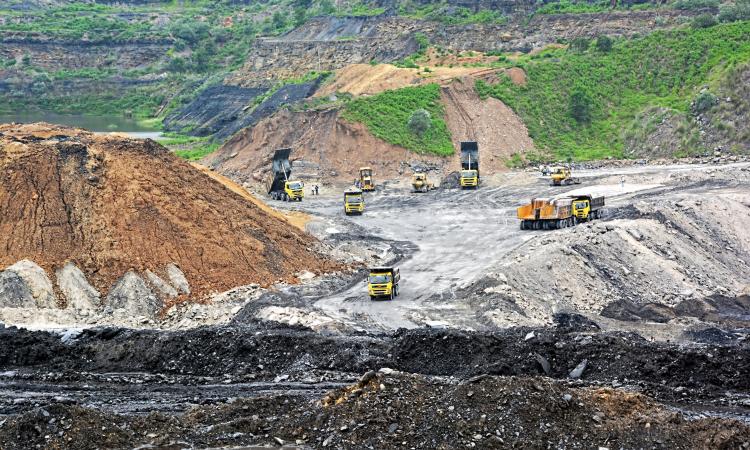
India's Micro, Small, and Medium Enterprises (MSMEs), constituting 30% of the GDP, employing 110 million workers, and contributing 49% to exports, stand as the backbone of the economy. However, limited access to affordable finance and technical know-how hampers their transition to cleaner, energy-efficient technologies.
As over 10,000 MSMEs shuttered their doors in 2022–23, signalling potential threats to the sector's health, climate-triggered stress amplified these vulnerabilities. This not only affects infrastructure, operations, and resources but also precipitates financial strain, job losses, and migration. To fortify MSMEs against these challenges, a comprehensive strategy is imperative.
The sector's significance extends beyond economic contributions. MSMEs play a crucial role in bridging economic disparities, promoting grassroots innovation, and generating employment. However, their carbon footprint, contributing around 110 million tonnes of CO2 annually, equivalent to the energy usage of 50 million metric tonnes of oil per year, highlights the imperative to align these enterprises with India's ambitious renewable energy goals. As India looks to cap emissions and foster a low-carbon future, the focus on MSMEs becomes critical.
The vulnerability of MSMEs to climate-induced risks necessitates a comprehensive approach to enhance their climate resilience. Awareness gaps, limited training, and capacity constraints hinder MSMEs' ability to adopt greener methods. Policymakers should prioritise the development of evidence-based adaptation solutions, employing technologies like artificial intelligence (AI) and geographic information systems (GIS) for climate information and risk assessment. Sector- and cluster-specific training sessions, coupled with dedicated learning platforms, can build awareness and prepare MSMEs to tackle growing risks effectively.
In the recent COP28, India laid out its long-term low-emission development strategy, emphasizing sector-wise approaches for low-carbon pathways. However, the dialogue often sidelines justice and equity concerns in MSMEs' transitions. Bridging these gaps is pivotal for effective climate resilience, requiring heightened awareness, capacity building, and access to green finance and technologies.
Financial constraints often impede MSMEs' investment in green technologies. The government, in collaboration with institutions like the Small Industries Development Bank of India (SIDBI), should design innovative and low-risk financial instruments to incentivize MSMEs. Green finance mechanisms, coupled with micro-insurance risk mitigation, can facilitate a smoother transition to sustainable practices, aligning with global climate finance initiatives.
One key avenue for bolstering MSME resilience lies in repurposing closed mines, particularly in regions rich in coal. Closed coal and lignite mines, viewed as potential green hydrogen production sites, offer a dual solution—addressing environmental concerns and contributing to India's ambitious targets. Strategic repurposing can tap into existing resources, such as contagious land for utility-scale solar and wind projects, abundant freshwater from mining activities for electrolysis, and pre-existing transmission infrastructure for renewable energy supply. India's vast mining landscape provides a distinctive backdrop for repurposing efforts.
With numerous closed mines, especially in coal-rich regions, the country possesses an opportunity to transform these areas into hubs of sustainable energy production. Repurposing initiatives can be tailored to regional needs, leveraging the existing infrastructure and harnessing the potential for green hydrogen production. This approach aligns with global trends while addressing local economic and environmental imperatives.
While challenges, including high production costs and water resource availability, are significant, repurposing mined lands emerges as a cost-effective solution. Australia's Fortescue Future Industries' initiative to convert a retired coal mine into a green hydrogen facility serves as a promising example. India can leverage its vast mined land parcels for green hydrogen facilities, potentially producing over one million metric tonnes annually, driving economic benefits and job creation.
In this journey towards a sustainable future, the role of state governments is pivotal. Collaborative efforts between the government, industry associations, and the private sector can boost MSME resilience. State governments play a pivotal role in facilitating information flow between departments, promoting complementary actions, and encouraging resource efficiency and adaptation practices at the cluster level. The inclusion of a gender-sensitive approach, given the significant share of women in MSMEs, further amplifies the positive impact on both environmental sustainability and inclusive economic development.
The recent Interim Budget 2024 announcement revealed a shift towards sustainable energy and economic empowerment, marking a pivotal moment in India’s trajectory towards a sustainable and more inclusive future. This vision underscores the government's dedication to tackling urgent environmental challenges while concurrently promoting economic growth and empowerment.
Emphasis was placed on various initiatives that aim to reduce carbon emissions and lay the foundation for a resilient energy infrastructure. offers an opportunity to allocate resources for climate adaptation solutions. In conclusion, the Interim Budget 2024, thus, becomes a strategic instrument for India to steer its MSMEs towards a sustainable and climate-resilient future.
By aligning fiscal incentives, repurposing mines, addressing climate resilience challenges, and fostering inclusive growth, India can unlock the immense potential of its MSME sector. A seamless integration of top-down and bottom-up approaches, coupled with innovative financial mechanisms, will be instrumental in shaping a just energy transition and fulfilling India's climate commitments.
Authors
Pooja Gupta is senior consultant and lead, Strategic Communications, and Ahamad Hammad Zubair, communications fellow, Strategic Communications, Policy and Development Advisory Group.
/articles/empowering-msmes-india-navigating-mine-repurposing-climate-resilience